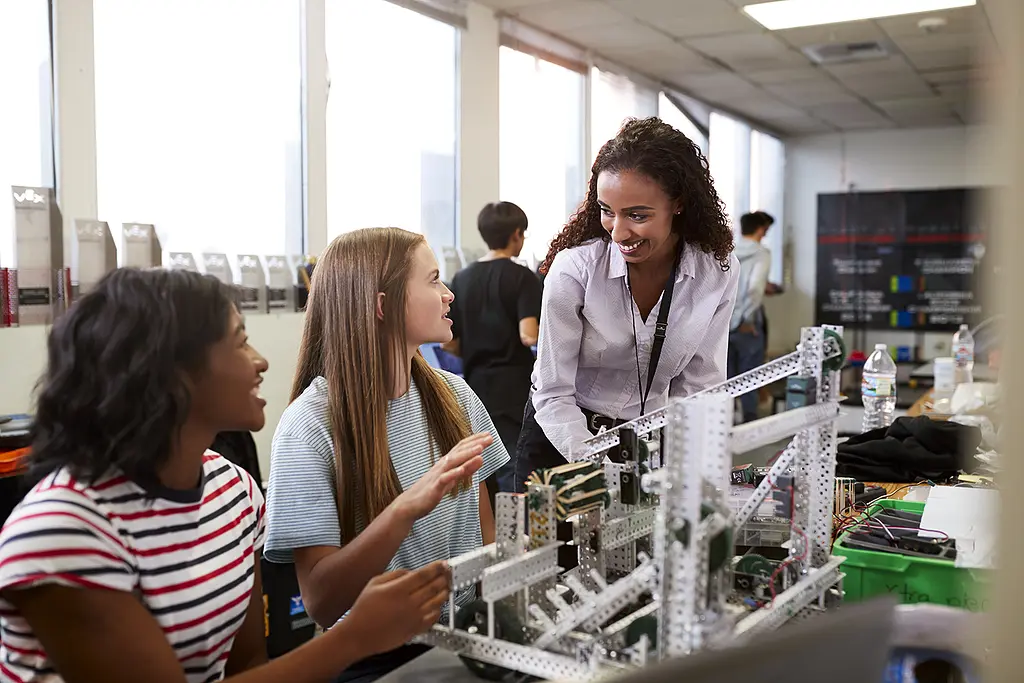Science is a lifelong endeavor. This February 11th, I am celebrating the International Day of Women and Girls in Science by reflecting upon what it means to be a scientist. In elementary school, my favorite school field trips were visits to the Roper Mountain Science Center, especially when those visits included trips to the Planetarium. In middle school, I won third place in the school science fair when I hypothesized that Coca-Cola would clean dirty pennies better than a commercial silver cleaner (I’m pretty sure I was wrong). In high school, I relished titrating to produce a brilliant magenta solution with the right combination of chemicals in my Erlenmeyer flask. In college, I went geocaching for the first time, learning about GPS devices while traipsing through the woods in a part of campus I’d never bothered to explore before.
Now, as a mom, I still enjoy the thrill that only science can bring. I conduct nightly science experiments when cooking dinner for my family or baking with my children. From deep in the recesses of my brain, I recreate science activities from my past with my sons at home: making homemade fire starters from paper egg cartons and dryer lint, combining vinegar and baking soda for a kitchen explosion, and creating a shaving cream storm in a jar to show how clouds release their moisture. I never miss the bi-weekly release of my favorite podcast, Gastropod, in which female co-hosts Cynthia Graber and Nicola Twilley examine food through the lens of science and history.
I’m willing to bet you’re a scientist, too.
- Have you ever used baking soda to clean a stubborn stove?
- When you’re in nature, do you notice the leaves changing color, tadpoles in a stream, or a bird’s unusual coloring?
- Did you take up a new hobby, like breadmaking or creating different varies of slime, during the earliest months of the COVID-19 pandemic?
- When the forecast calls for snow or rain, do you find yourself glued to the Doppler radar?
- Have you ever tried a different route on your way home from work, just to see if you reach your destination a little faster?
- Do you add fertilizer to your lawn, eggshells to your hydrangeas, or kitchen scraps to your compost heap?
- Have you ever debated the merits of a PCR test versus a rapid antigen test for detecting COVID-19?
If you answered “yes” to any of these questions, you are, in fact, a scientist. Even if you didn’t answer “yes” to these specific examples, I bet you’re still dabbling in scientific endeavors in one way or another.
As children, we are tiny scientists. But somewhere along the way, we can lose the spirit of experimentation and learning, a phenomenon even more pronounced for women. Many—if not most—adults think of science as something squarely relegated to their past, and as a lawyer I could easily fall into that trap. After all, my formal science education ended some 20 years ago. The reality, however, is that science is a lifelong journey, even for those of us who don’t think of ourselves as engaging with science each day. As a nonprofit research institute committed to delivering the promise of science for global good, RTI International embraces and encourages lifelong science scholarship.
So, what if instead of thinking of science as a check-the-box graduation requirement in high school, we approach it as an essential part of life? What if we look for everyday opportunities to practice science – mindfully, intentionally? What if we celebrate the science all around us, especially woman-led endeavors? With this in mind, here are some recent woman-led science achievements worth celebrating:
- On October 18, 2019, NASA Astronauts Christina Koch and Jessica Meir made history by conducting the first all-female spacewalk. A graduate of the North Carolina School of Science and Mathematics, Koch currently holds the record for the longest continuous time in space by a woman at more than 328 days.
- In 2020, Dr. Kizzmekia Corbett and her colleagues helped to develop the Moderna mRNA vaccine and Eli Lilly therapeutic monoclonal antibody treatment to combat COVID-19.
- A science experiment started in 1879 continues today with female scientists helping to carry the torch forward. Female researchers Marjorie Weber and Margaret Fleming are both members of a five-person team at Michigan State University carrying forth the seed research of botanist William James Beal more than a century later. In May 2021, the team reported that 11 seeds from the original experiment germinated more than 142 years after the experiment started.
- At age 82, Wally Funk became the oldest person to fly to space with Blue Origin on July 20, 2021, finally realizing her dream of space travel after 60 years.
Science is a lifelong endeavor. What’s your next experiment?

